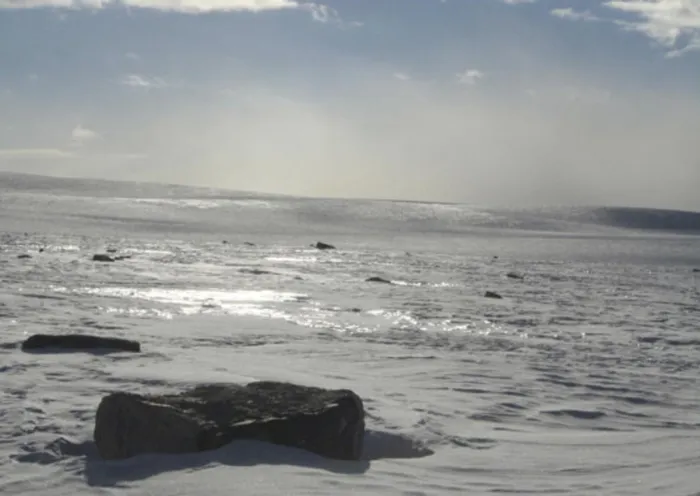Ancient lake could hold vital clues

A boulder sits on an ice sheet in Antarctica, that stretches about 250 km (155 miles) towards the southern ocean, in this undated photograph. The rocks have been ground out of a nearby mountainside. A deep freeze holding 90 percent of the world's ice, Antarctica is one of the biggest puzzles in debate on global warming with risks that any thaw could raise sea levels faster than U.N. projections. REUTERS/Alister Doyle (ANTARCTICA) To match feature ANTARCTICA/MELT A boulder sits on an ice sheet in Antarctica, that stretches about 250 km (155 miles) towards the southern ocean, in this undated photograph. The rocks have been ground out of a nearby mountainside. A deep freeze holding 90 percent of the world's ice, Antarctica is one of the biggest puzzles in debate on global warming with risks that any thaw could raise sea levels faster than U.N. projections. REUTERS/Alister Doyle (ANTARCTICA) To match feature ANTARCTICA/MELT
London - An ancient lake hidden deep beneath West Antarctica's Ice Sheet may reveal vital clues about climate change and future sea level rises, and uncover new forms of life, according to a group of UK engineers and scientist.
This month a British engineering team will travel to one of the most remote and hostile environments on Earth - Lake Ellsworth, which is buried under 3 kilometres of ice - in the first stage of a project costing over 7 million pounds ($10.9 million).
The ice sheet covering the lake has trapped the Earth's geothermal heat, preventing it from freezing.
The team will prepare for a challenging drilling operation starting next November to collect water and sediment samples from the lake's floor, which will help scientists assess the stability of the West Antarctic Ice Sheet and future sea level rises.
“If we can find out if or when the ice sheet retreated or collapsed, it could tell us what kind of conditions would lead to a West Antarctic retreat in the future,” Mike Bentley, glacial geologist at Durham University, told reporters at a briefing on Monday.
For many years, scientists have speculated that new and unique forms of microbial life evolved in this dark, sterile and isolated environment which experiences temperatures of minus 25 degrees centigrade.
The team expects to find evidence of viruses, bacteria, single-celled microorganisms called archea and complex cell organisms called eukaryotes.
These lifeforms could increase our understanding of how life on Earth began and evolved and help define its limits.
“Finding life in a lake that could have been isolated from the rest of the biosphere for up to half a million years will tell us so much about the potential origin of and constraints for life on Earth and may provide clues to the evolution of life on other extra-terrestrial environments,” said David Pearce, science coordinator at the British Antarctic Survey.
“If we find nothing (it) will be even more significant because it will define limits at which life can no longer exist on the planet.”
However, some experts worry that penetrating such untouched environments could alter them for good.
To avoid contamination, the Lake Ellsworth Programme's water probe and hot water drill will use clean technology derived from space science, the team said.
The project, mostly funded by the UK's Natural Environment Research Council, hopes to be the first to take samples and measurements from one of Antarctica's 387 known subglacial lakes.
Other research teams have been racing to penetrate such lakes after satellite data in the 1990s uncovered the hidden network in Antarctica.
Russian scientists are currently forced to wait until December to resume drilling at East Antarctica's Lake Vostock, after the end of summer this February cut short their operation.
A US project is concentrating on the Whilland Ice Stream in West Antarctica but it is unlikely to gain entry to the lake until next year. - Reuters